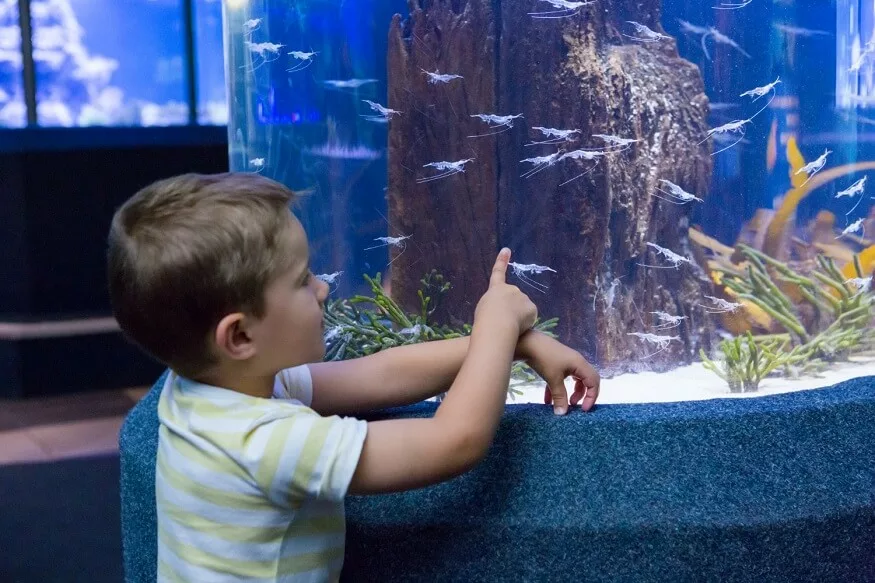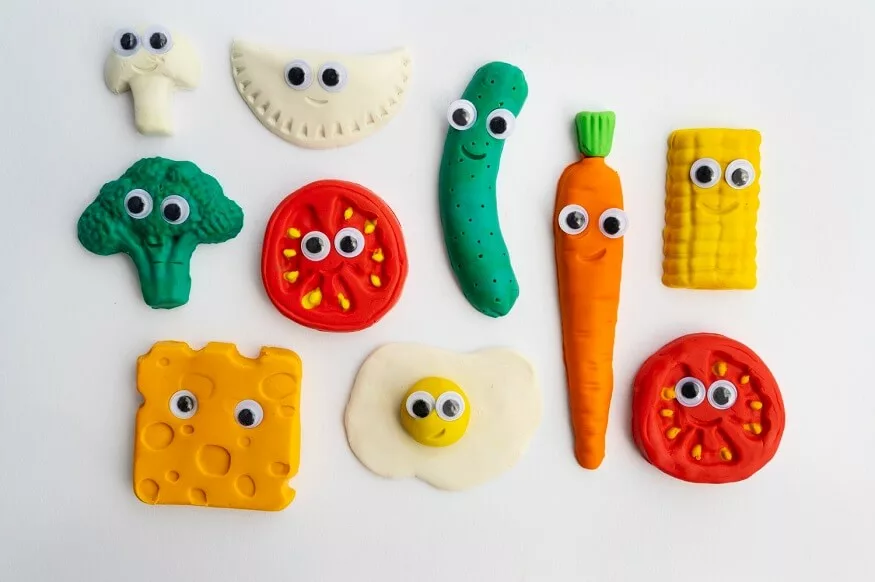Beyond being a delightful day out, aquarium visits play a pivotal role in shaping a child’s early understanding of the world. In this article, we dive deep into the importance and benefits of aquarium school trips, unveiling the magic of discovering the ocean and its wonders.
Sensory Stimulation:
Vibrant Visuals
Aquariums are a feast for the eyes. The vibrant hues of fish, the graceful dance of sea creatures, and the ever-changing aquatic landscapes captivate the attention of preschoolers. This visual stimulation contributes to the development of their observational skills and an appreciation for the beauty of nature.
Touch Pools
Many aquariums feature touch pools where children can interact with marine life. Feeling the smooth scales of a fish or the rough texture of a starfish provides a tactile experience that stimulates the sense of touch, fostering sensory development.
Calming Sounds of the Ocean
The gentle hum of water, the rhythmic sway of aquatic life, and the distant echoes of the underwater world create a symphony of calming sounds. Experiencing these auditory cues introduces preschoolers to the auditory wonders of the ocean, contributing to their sensory awareness.
Also Read: Benefits of Mind Mapping for Learning and Creativity For Preschoolers
Educational Adventure
Learning about Marine Life
Aquariums serve as living textbooks, offering a comprehensive lesson on marine life. From the smallest seahorse to the majestic sea turtles, preschoolers have the opportunity to learn about the diverse inhabitants of the ocean, expanding their knowledge beyond the realms of traditional classroom learning.
Understanding Ecosystems
The aquarium setting provides a microcosmic view of marine ecosystems. Children observe the delicate balance between fish, plants, and coral reefs, gaining an early understanding of the interconnectedness of life and the importance of preserving ecosystems.
Life Cycle Demonstrations
Many aquariums feature exhibits that showcase the life cycles of various marine creatures. Witnessing the transformation from eggs to larvae and then to fully grown organisms offers a tangible and visual representation of the concept of life cycles, making learning more engaging for preschoolers.
Cultivating Curiosity
Question and Answer Sessions
Aquarium visits often include interactive sessions where educators or aquarium staff engage children in question and answer sessions. Encouraging preschoolers to ask questions and seek answers nurtures their natural curiosity and instils a love for learning.
Interactive Workshops
Some aquariums offer workshops tailored for preschoolers. These hands-on activities, such as arts and crafts, storytelling, or simple experiments, provide a dynamic learning environment that complements traditional classroom education.
Encouraging Exploration
The layout of an aquarium encourages exploration. Preschoolers are given the freedom to move at their own pace, stopping to observe exhibits that catch their interest. This self-directed exploration fosters a sense of independence and an intrinsic motivation to learn.
Also Read: Starting Handwriting For Preschoolers: What’s Normal, What’s Not
Connection to Classroom Curriculum
Aligning with Themes
Many preschool curriculums incorporate themes related to the ocean, marine life, or water conservation. An aquarium visit seamlessly aligns with these themes, reinforcing classroom learning and providing a real-world context to the concepts discussed in class.
Extension of Classroom Lessons
Teachers can use the aquarium visit as an extension of classroom lessons. Preparing students with information about the types of fish they might see, discussing marine habitats, or introducing the concept of underwater geography prior to the trip enhances the educational impact.
Follow-up Activities
Post-trip, teachers can integrate follow-up activities into the curriculum. These could include drawing or painting sessions inspired by the aquarium visit, writing assignments, or group discussions about the children’s favourite exhibits, creating a bridge between the outing and ongoing learning.
Nurturing a Sense of Responsibility
Understanding Conservation Efforts
Many aquariums actively engage in marine conservation efforts. Learning about initiatives such as coral reef restoration, marine animal rescue, or sustainable fishing practices instils a sense of responsibility in preschoolers towards protecting the ocean and its inhabitants.
Eco-Friendly Practices
Aquariums often model eco-friendly practices, such as responsible waste disposal and energy conservation. Exposing preschoolers to these practices encourages them to adopt environmentally conscious behaviours in their daily lives.
Promoting a Sense of Stewardship
Through educational programmes and exhibits, aquariums foster a sense of stewardship for the ocean. Preschoolers, even at a young age, can grasp the idea that they play a role in caring for the environment, instilling a lifelong commitment to ecological responsibility.
Also Read: What is A Sensory Bin? DIY Guide for Preschoolers
Social Interaction
Group Dynamics
Aquarium visits provide an opportunity for social interaction outside the confines of the classroom. Observing marine life together, discussing exhibits, and sharing experiences strengthen the bonds between preschoolers, fostering a sense of camaraderie.
Team Building
Activities within the aquarium, such as group discussions or collaborative tasks, contribute to team-building skills. Preschoolers learn to cooperate, share ideas, and work together, enhancing their social and emotional development.
Shared Memories
The shared experience of an aquarium trip creates lasting memories for preschoolers. These shared memories not only contribute to a positive class culture but also serve as a foundation for shared stories and connections among the children.
Also Read: Why Is Art For Preschoolers Important? Benefits of Arts for Preschoolers
Practical Life Skills
Navigating Public Spaces
A trip to the aquarium introduces preschoolers to the dynamics of navigating public spaces. Following group leaders, waiting in queues, and respecting the space of others are practical life skills that children can learn in a controlled and supervised environment.
Following Instructions
Aquarium visits provide opportunities for preschoolers to practice following instructions from teachers or guides. These instructions may include guidelines for behaviour, safety rules, or directions for specific activities, contributing to the development of listening and following instructions.
Developing Independence
The relatively controlled yet dynamic environment of an aquarium allows preschoolers to develop a sense of independence. Making choices about which exhibits to visit, interacting with exhibits, and expressing preferences contribute to their growing independence.
Connecting with Nature
Appreciation for Biodiversity
Aquariums showcase a diverse range of marine life from different parts of the world. This exposure contributes to the development of an appreciation for biodiversity and an understanding of the variety of life forms that inhabit our planet.
Understanding Habitats
The exhibits in aquariums often recreate specific marine habitats. Preschoolers gain insights into the unique characteristics of these habitats, from coral reefs to deep-sea environments, broadening their understanding of the diversity of ecosystems.
Inspiring Future Conservationists
For some preschoolers, a trip to the aquarium sparks a passion for marine life and conservation. By witnessing the beauty and fragility of the ocean, children may develop a desire to protect the environment, potentially inspiring future marine biologists, ecologists, or conservationists.
Also Read: 8 Reasons Why Exploring Nature with Children is Important
EuroSchool recognises the value of such experiences and actively incorporates them into the educational journey of preschoolers to contribute to the holistic development of young minds.









